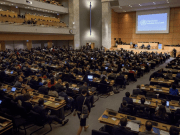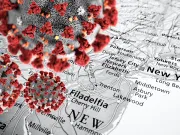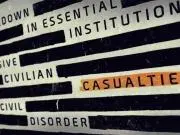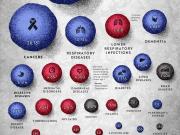Governments are preparing for a post-corona world. They are relaxing social distancing rules, and public health experts have been figuring out how people should proceed with socializing. One solution could be “social bubbles,” which means small groups of people will be allowed to socialize with each other outside their household regularly.
Europe could be the first continent to implement the new scheme. The UK government is calling it “10 friends and family” strategy. This would enable people to socialize with ten friends and family for sporting activities, having a beer, and or even having dinner.
According to the Belgian newspaper Le Soir, the new strategy in reopening the economy while keeping the curve flatten was first examined by the Belgian government. The idea is to limit socialization in the immediate weeks and months after lockdowns are lifted to a small group. This will hopefully lower the probability of contracting the virus.
Psychologist Dr. Linda Papadopoulos is optimistic about social bubbles:
“At the start of COVID-19, people would have been like, ‘Are you kidding me? This is ridiculous!'” Papadopoulos told Market Watch. “But when we’ve not been allowed to see anybody bar immediate family for close to two months, I think people will see it as progress and a welcome development.”
Rory Sutherland, a behavioral scientist and vice chairman of the advertising agency Ogilvy, noted: “The proposal [social bubbles] makes perfect sense from an epidemiological perspective.”
“From a psychological perspective,” said Sutherland, “I am not sure that it works at all. … Any group assembling could simply claim that everyone present was part of the same cluster, and without spectacular levels of bureaucracy, it would be impossible to establish the veracity of this. It would re-establish the sight of large groups of people as a norm.”
He added, “I think it falls into that category of “excellent science, bad policy.”
Stefan Flasche, associate professor for the department of infectious disease epidemiology at the London School of Hygiene & Tropical Medicine, detailed in a recent blog post the importance of exclusivity within these bubbles.
Flasche noted how lockdowns were extremely hard for his young daughter, explaining how at her age, with limited digital communication that “her social life is very much centered around close physical contact with her best friends.”
He said allowing her to see her friends would “tremendously help her mental health and social development,” and he noted private playgroups could be formed.
This “social contact clustering for children would allow them to mingle with their friends while only adding a rather marginal risk for coronavirus infection from, or transmission to, those outside of the playgroup and their respective households,” Flasche said.
Furthermore, do not worry about the enforcement of these bubbles; the government could use smartphone app(s) to track and trace bubble violaters.
via zerohedge






















